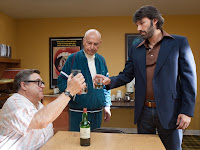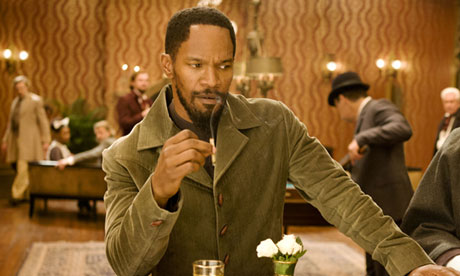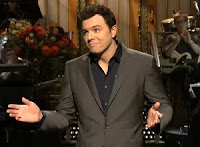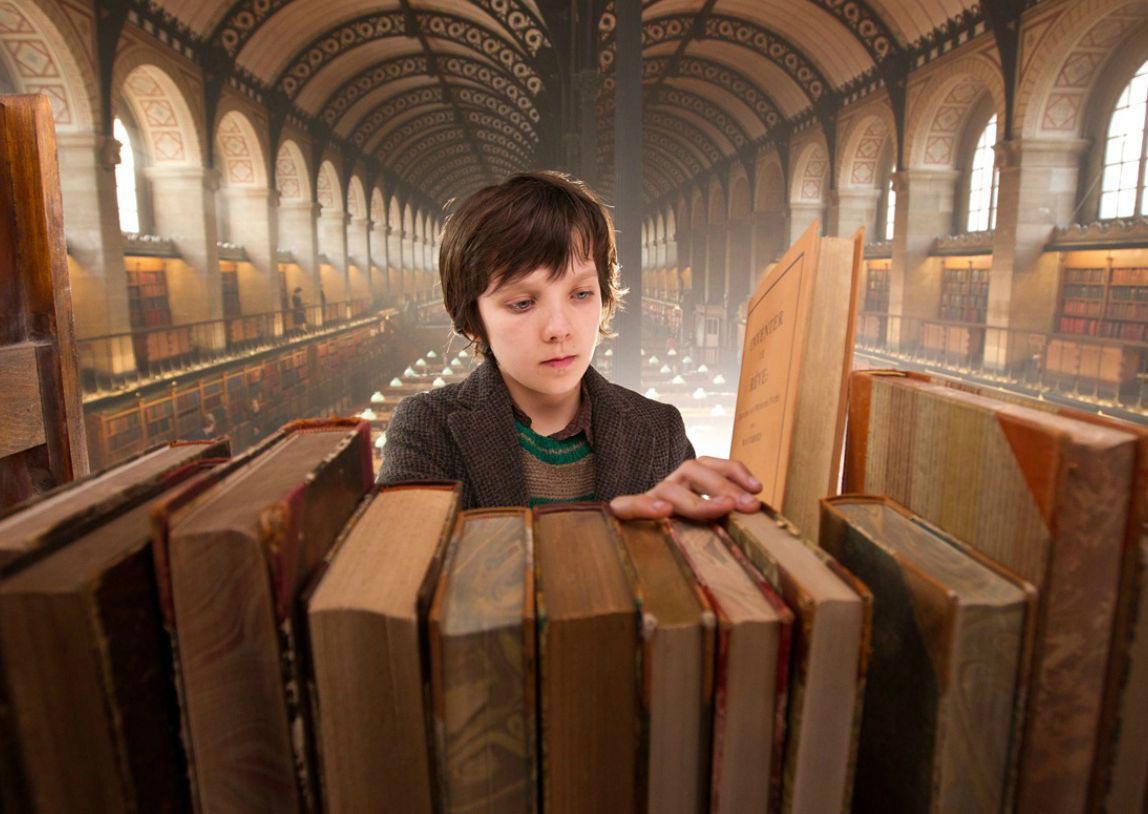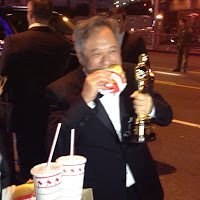 |
It’s easy to be cynical about an awards show that’s basically an over long, overly expensive way for Hollywood to congratulate itself. But no matter what, I look forward to the Oscars every year. It’s like my Super Bowl. So instead of complaining and mocking, I will instead present some of my favorite things about this year’s ceremony (After the Jump):
Seth MacFarlene Makes Me Laugh
For those of you that know me, making me laugh is not necessarily the hardest thing in the world. However, I came into this expecting to hate MacFarlene’s hosting job. However, I need to learn not to underestimate one of the hardest working people in show business. The verdict on him has been split, but MacFarlene killed it in his monologue, with some zingers that were a bit too edgy for the bordering-on-PC crowd (come on guys, are you really offended by a Mel Gibson joke?). MacFarlene maintained and a high energy and self-deprecating mood throughout the show. Also a big hit for me was the boob song. I laughed. A lot of people found it sexist. So either a lot of people are way too sensitive, or I’m just sexist.
James Bond Tribute
Outside technical categories, 007 has never been a favorite of Oscar voters. However, the series is becoming harder to ignore in recent years. Maybe to compensate for the egregious snub of Javier Bardem, the Oscars paid tribute to the 50th anniversary of James Bond. The clip show was fine and maybe not necessary, but getting to see Shirley Bassey belt out the classic “Goldfinger” theme was a treat. I really do wish they also could have brought Nancy Sinatra and Paul McCartney to sing “You Only Live Twice” and “To Live and Let Die,” respectively.
Surprise Wins
Winners have been pretty predictable the past few years, and there were certainly some sure things tonight. However, this was the first ceremony where I felt that a majority categories were completely up for grabs. Ang Lee looked just as shocked as everyone else when he was called up to the stage for directing “Life of Pi.” Not to mention, there was even a tie tonight. Also, “Django Unchained” surprisingly stole a few categories. Speaking of “Django Unchained”…
Django Unchained Gets Some Love
I expected “Django Unchained” to walk home empty handed. Instead, Christoph Waltz is now 2 for 2, and Tarantino got his first Oscar since “Pulp Fiction.” Waltz was truly the lead in “Django Unchained,” but had he actually been nominated there he surely would have lost to Daniel-Day Lewis. I do hope he shares that statue with the unfortunately snubbed Leonard DiCaprio and Samuel L. Jackson, who I think both deserved that award just a little bit more (I’m not complaining, though). As for Tarantino, this win is perhaps an apology for the fact that “Inglourious Basterds” lost to Mark Boal’s script for “The Hurt Locker” in the same category three years ago. With Boal nominated this year for “Zero Dark Thirty,” Quentin got his own little taste of vengeance.
Jennifer Lawrence
No one was surprised when the 22-year-old won for “Silver Linings Playbook.” However, no one could have foreseen her tripping on her dress to be more memorable than her speech. Lawrence, per usual, handled it with grace and good humor. Then backstage, she lit up a stuffy press conference by confessing “I just took a shot.” She is the rare movie star who doesn’t seem like a PR spewing machine. She’s the rare celebrity who’s not afraid to say what she means, and always manages to be the more likable for it. Oh, and yes, she acted the hell out of that movie.
Daniel Day-Lewis the Comedian
Of course Daniel Day-Lewis won for his convincing transformation into Abraham Lincoln. When he went up to accept his award, he suddenly took his serious face off with some great jokes. The best might have been the one about Meryl Streep originally auditioning for the part of Lincoln. I’m not sure if this whole speech was genuine, or if Daniel Day-Lewis was just method acting for a future George Carlin biopic.*
Ben Affleck’s Speech
I liked “Argo” a lot, but I don’t think it deserved to win Best Picture. However, Affleck’s speech made it worth it. Here is someone who’s career nearly ended 10 years ago (2003: the year of “Gigli” and “Daredevil”). After he slowed down, Affleck delivered a speech that was humble, moving, and inspirational. Affleck has come a long way, but to me he will always be the guy with the best lines in “Mallrats.”
Jack Nicholson Has No Idea Where He Is
Nicholson is a staple of the Oscars. Granted, the man is getting old, but I don’t think he knew why Michelle Obama was suddenly on a giant screen above him. I almost expected him to shout, “go Lakers!”
Russell Crowe Sings
Quite simply put, this was by far the funniest moment of the night. Please let this man host next year. And please make him sing the entire ceremony while reading off all of his Tweets.
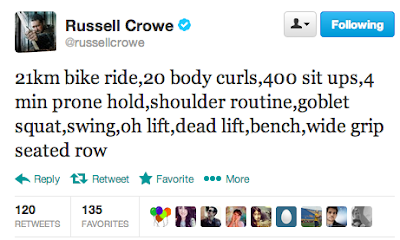 |
| Basically his entire Twitter feed. |
*Or Richard Pryor, if Daniel Day-Lewis actually decides to be a real life Kirk Lazarus.

